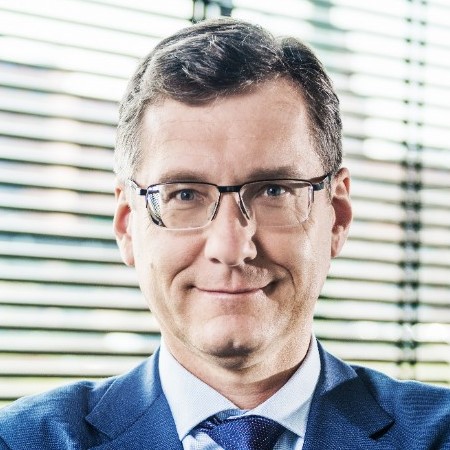Medicines And Misinformation: Social Media Brings Pharma To Ukraine’s Frontline
Companies Inundated With Pleas For Medical Assistance
Executive Summary
Social media has played a crucial role in informing the world of Ukraine’s plight – but it also presents biopharma with problems in countering misinformation and managing urgent medical needs.
As Ukraine’s humanitarian crisis deepens, biopharma companies are doing their best to meet the often desperate need for medicines amid unprecedented direct appeals for help via social media.
Many of the European industry’s biggest companies, including Roche, Bayer and Novo Nordisk, have been quick to respond to the crisis and have followed the established protocol of donating medicines and money to humanitarian agencies rather than attempting to deliver emergency supplies directly.
But social media platforms such as Twitter and TikTok have allowed people caught up in the conflict to share videos and updates from inside Ukraine, and they include health professionals and hospitals appealing directly to pharma companies for essential medical supplies. (Also see "EU Industry Condemns Invasion Of Ukraine, Gives Details Of Pharma Firms’ Donations" - Scrip, 4 Mar, 2022.)
Andy Powrie-Smith, director of communications and patient engagement at the European Federation of Pharmaceutical Industries (EFPIA), told Scrip that the direct appeals made via social media by healthcare professionals had been unprecedented.
“Member companies have been contacted by individual healthcare professionals, general practice surgeries and hospitals all over Ukraine that are understandably desperate for the tools that they need to save lives. Social media gives them quick access when services aren’t available, so we are working to read all those requests,” he said.
“The logistics of moving medicines and vaccines through a war zone require a secure supply chain rather than responding to each individual request work. So that means working with NGOs and health ministries … doctors’ organizations and patient organizations.”
Many of the emergency medical needs center on trauma first aid kits, antibiotics and oxygen supplies, but also include maintaining supplies of essential medicines such as insulin and cancer treatment.
The surge of social media interest and the chaos unleashed by the Russian invasion has also been fertile ground for disinformation and misinformation. One epidemiologist and prolific Twitter commentator Eric Feigl-Ding, who built up a following talking about COVID-19 has now pivoted to Ukraine. He tweeted on 1 March that Russian forces had “cut off access” to Novo Nordisk’s main warehouse in Ukraine, risking the country’s supplies running out in a matter of days.
The tweet garnered thousands of retweets and likes, even though it had no verified source. Novo Nordisk moved the same day to clarify the situation, stating that the warehouse was still in operation, but that driver shortages were affecting deliveries.
Our warehouse in Ukraine is still in operation. However deliveries have been and will be impacted due to shortages in driving staff. We are doing everything we can to get medicines to patients that need them either through pharmacies or humanitarian organizations.
— Novo Nordisk (@novonordisk) March 1, 2022
The company provided Scrip with an update on 7 March, and said it still had medicine supplies across Ukraine, and had also expanded stock of medicines in the neighboring countries.
Declining to comment on social media misinformation, the company said it was focused on “doing all we can to maintain the supply of essential medicines to patients living with chronic diseases in Ukraine.” It is doing this by making donations of diabetes and hemophilia drugs from its current stock to Ukraine’s Ministry of Health, and working with humanitarian organizations to assess need for other product donations.
No Stockpiling Needed, But Humanitarian Corridors Essential
More than 1.7 million civilians have fled Ukraine following the Russian invasion, making it the fasting-growing refugee crisis in Europe since the second world war, according to the UN’s refugee agency. There is concern that European countries may attempt to stockpile medicines as a precaution against supply chain disruptions – which could in turn lead to real medicines shortages elsewhere.
Powrie-Smith said this needed to be avoided as the sector tries to get to grips with the emerging needs of refugees across the continent. “We're going to need as much flexibility as we can to be able to move medicines around, and make sure the escalating numbers of refugees can access the medicines they need. And if one particular country asks for say six months’ stock of a particular medicine, that becomes very difficult.”
The European Commission was given the mandate by EU member states to take on a more proactive role in public health during the COVID-19 pandemic, and is now being sought as a partner for industry to ensure national requests for medicines supplies are managed.
The situation in Ukraine is likely to grow even more critical if humanitarian corridors are not established, particularly in the most heavily shelled cities of Mariupol, Kharkiv, Melitopol. On 7 March the Ukraine government rejected Russia's proposed corridors, as most of them led directly to Russia or its ally, Belarus.
Poland Welcomes Refugees
One central European pharma CEO, Pawel Przewiezlikowski of Krakow, Poland-based Ryvu Therapeutics is one of the co-signatories of the open letter signed on 27 February by biopharma leaders that called for business leaders to ‘economically disengage’ from Russia. He stressed again to Scrip the letter’s point that this specifically excluded medicines and food, and maintains it is the sector’s duty to serve all patients.
Przewiezlikowski told Scrip that Poland was ready to help the millions of refugees who have flooded into the country, including those requiring urgent medical attention, such as children whose cancer treatment had been interrupted. He said the country would be able to cope thanks to a strong economy, but would nevertheless need assistance, especially as its healthcare system has been stretched by the COVID-19 pandemic.
Ryvu is also among the many customers of Enamine, the Kyiv-based supplier of the chemical building blocks used in drug discovery around the world. The company has been using Twitter to condemn the invasion, while also maintaining its services to international customers. Its founder and CEO Andrey Tolmachov has issued a blog post calling on biopharma to "sound like one voice now" and press for the NATO's intervention in the conflict.
Please, read the official appeal by Enamine founder and CEO Andrey Tolmachov to the Drug Discovery and scientific community.#enamine #standwithukraine #drugdiscoveryhttps://t.co/LobgCgN25S pic.twitter.com/WlaiS5HDzV
— Enamine Ltd 🇺🇦 (@EnamineLtd) March 5, 2022
Przewiezlikowski warned that public support for Vladimir Putin in Russia remains high, but was nevertheless heartened by the rapid and unprecedented sanctions imposed by the US and European nations targeting Russia’s economy, and by the surge of support via social media.
“I don’t think it would have been possible without the internet and without social media and without direct pictures from people showing what is happening in Ukraine,” said Przewiezlikowski.
“If Putin loses this war, it's also significantly because of the power of free media, social media, free speech. It's really difficult to wage a war against the entire civilized world with free information flow. But he seriously underestimated it, and hopefully it may be his undoing.”

